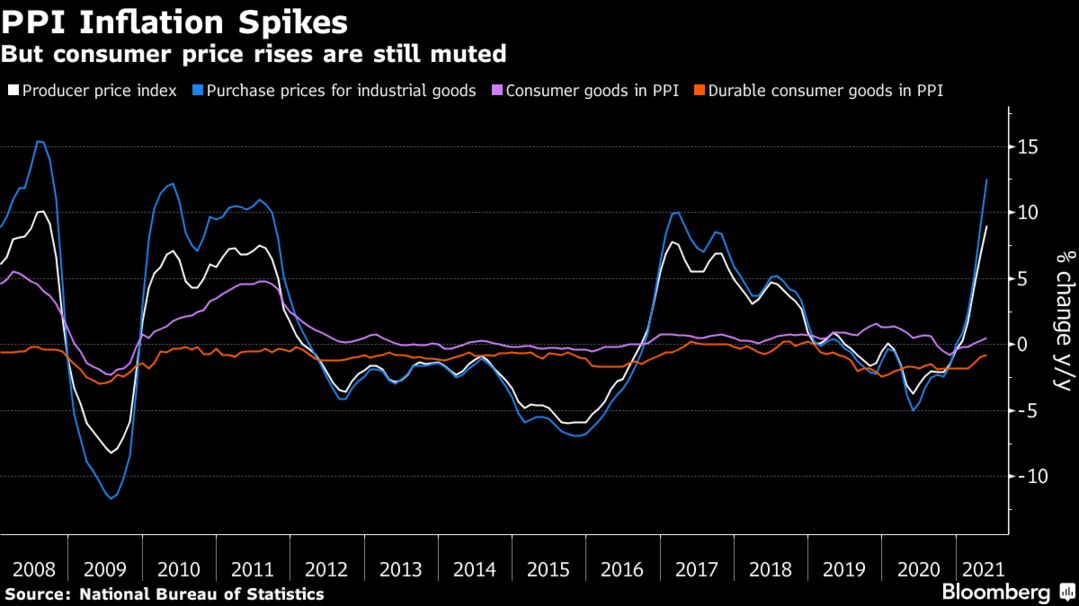Surging costs of imported commodities drove China’s factory-gate inflation to its highest level since 2008, raising the odds that exporters will begin passing on higher prices and boost inflationary pressures in the global economy. The producer price index climbed 9% in May from a year earlier, driven by price increases for oil, metals and chemicals, the National Bureau of Statistics said Wednesday. The median forecast in a Bloomberg survey of economists was for an 8.5% increase. Consumer inflation increased only 1.3% from a year ago, missing an estimate of 1.6% and suggesting retailers aren’t hiking prices yet due to sluggish domestic demand.
Intense competition among manufacturers in China, which is the world’s top exporter, has had a deflationary impact on global consumer prices since the 1990s. Now, rising costs and surging export demand mean some factories could soon start hiking prices due to low margins, just as inflation starts to pick up in the U.S. and elsewhere following vaccination roll-outs that have allowed economies to re-open.
“Export prices may pick up in dollar terms due to the currency appreciation” of the yuan, said Michelle Lam, Greater China economist at Societe Generale SA. “Supply-side bottlenecks in other emerging market countries are also favorable for the bargaining power of Chinese exporters.” However, the prices pressures will only be transitory, she said.
Widening Gap
China’s inflation gap between factories and consumers widest since 1993
Source: National Bureau of Statistics
So far, manufacturers are absorbing higher costs, rather than passing them on to customers.
“It is impossible to pass on the cost to consumers even in overseas markets. Producers have to eat up these costs,” Iris Pang, chief economist for Greater China at ING Bank NV, told Bloomberg TV. Upstream producers — who have seen strong profit growth on the back of Beijing’s efforts to rein-in excess capacity in recent years — have scope to absorb price increases and shield downstream producers, she added.
Global commodity prices have rallied this year on strong property investment in China and record stimulus by governments around the world, combined with supply constraints caused the coronavirus pandemic. Beijing has launched a campaign to curb prices by cracking down on financial market speculation on commodities as well as hoarding, which have caused slight declines in prices in recent weeks. But ultimately authorities have limited leverage over prices of imported goods such as iron ore.

